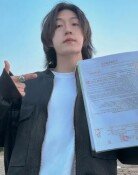NYT must apologize for wrong views on Koreas history textbooks
NYT must apologize for wrong views on Koreas history textbooks
Posted January. 16, 2014 01:36,
The New York Times, a flagship newspaper in the U.S., treated Japans distortion of past history and the Korean governments recommendation to revise history textbooks, in its editorial entitled Politicians and Textbooks, and received appeals and requests by the Korean Foreign Affairs Ministry and Education Ministry to correct wrong facts. By linking history textbook issues that are unfolding in Korea and Japan together, the editorial printed on Monday criticized that Japanese Prime Minister Shinzo Abe and President Park Geun-hye are forcing publishers to write their political views in high school history textbooks.
The New York Times is recognized for its reputation and authority among intellectuals not only in the U.S. but also around the world. However, the editorial in question committed serious errors in delivering basic facts. The editorial is believed to be raising issue with the eight Korean history textbooks for high schools, which were under controversy here recently. President Park has never made remarks asking their publishers to rewrite contents from a certain perspective thus far. As her most recent remarks, Park just said in her New Years press conference, Students should learn using textbooks with balanced views based on facts, and textbooks should not be biased whether it is leaning towards right or left.
The editorial used seriously misguided judgment as it criticizes across the board the Abe administrations policy seeking to delete from textbooks Japans history of inhumane aggressions into Asia, including the Nanjing Massacre and comfort women for the Japanese military, and the Korean governments textbook policy. The recommendation the Park administration gave to publishers of the textbooks was the request to correct factual errors, or correct left-leaning views, which (some of them) dampen the legitimacy of South Korea while turning a blind eye to the wrongs in the North. This was also a far cry from being an order placed by the administration to make textbooks to comply with its instructions. On the contrary, it was the left-leaning history education community that pressured schools to refrain from adopting Kyohak textbook in their curricula, and thereby infringed upon self-regulation by schools.
The claim that many of the professionals and ranking officials in Korea were decedents of families who cooperated with Japan during the Japanese colonial era is also groundless. It is apparently wrong to claim that decedents of pro-Japan families account for a majority of professionals in Korea that now number millions. Korea is considered a society that saw dynastic mobility between social classes as the country went through the Korean War and the process of speedy industrialization.
The New York Times apparently wrote the editorial only by referring to argument by the left-leaning history community, which staged a campaign to force out Kyohak textbooks from Korea. Moreover, Korea is a country that suffered heavy damage from Japanese imperialism. Construing Japans history distortion as a matter on par with the debacle over history textbooks in Korea constitutes an insult to the Korean people. The New York Times is urged to take reasonable measures, including carrying a correction and making an apology.







